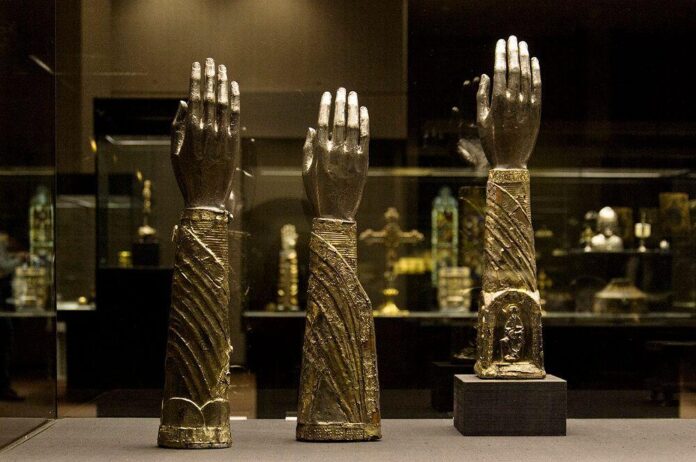The descendants of the Jewish former owners of the Guelph Treasure suffered a new defeat in their long-running legal battle with the Prussian Cultural Heritage Foundation on Thursday 13 July, when the U.S. Court of Appeals upheld a previous decision denying them the right to have their claim judged on merit in a U.S. court.
The ruling follows a 2022 regional court ruling and a Supreme Court ruling in 2021 over the contested treasures, whose value the claimants estimate to be at least €200m. Known in German as the Welfenschatz, the Guelph Treasure is now part of the collection of the Berlin Kunstgewerbemuseum (Applied Arts Museum), which is managed by the Prussian Cultural Heritage Foundation.
The foundation had argued that as a German state institution it was immune from U.S. legal decisions under the Foreign Sovereign Immunities Act. “This ruling confirms the Prussian Cultural Heritage Foundation’s view that a claim for the restitution of the Guelph Treasure should not be handled by a U.S. court,” Hermann Parzinger, the president of the foundation, said in a statement.
The Guelph Treasure comprises 42 pieces dating from the 11th century to the 15th century, primarily precious gem-encrusted reliquaries and crosses. The most valuable is a 12th-century domed reliquary, shaped like a church and made of gold, copper and silver with figurines of biblical characters fashioned out of walrus tusk.
The treasure’s first home was the cathedral in Brunswick. It entered the possession of the House of Guelph, a royal dynasty, in 1671. The Guelph family’s reign over the principality of Braunschweig ended during World War I, and in the 1920s, its members tried to sell the Guelph treasure. In 1929, they sold 82 items to a consortium of Frankfurt art dealers – the forefathers of the claimants. In the following years, 40 pieces were sold to museums and private collectors. In 1935, the Prussian state, with Hermann Goering’s backing, paid 4.25 million Reichsmarks for the remaining treasure.
In 2014, the German Advisory Commission on Nazi-looted art rejected the descendants’ claim, upholding the Prussian Cultural Heritage Foundation’s view that the sale was not due to persecution and that the loss suffered by the dealers on its sale reflected the art market after the world economic crisis. The claimants argued that this view distorts the experience of Jews living in Germany after the Nazis seized power.
They expressed disappointment at the Court of Appeal’s new ruling.
“We are continuing to review the opinion and consider our next steps,” said Nicholas O’Donnell of Sullivan & Worcester in Boston, who is representing the claimants. “Germany’s continued refusal to acknowledge the obviously coercive sale involving Hermann Goering’s agents for what it was—theft—stands in stark contrast to Germany’s obligations under the Washington Conference Principles on Nazi-Confiscated Art.”

























